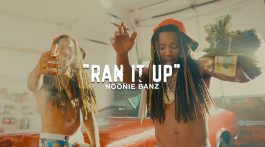Lauren Streib, Forbes.com
On
March 5, 2009, Michael Jackson stood in front of an audience of
cameras, flashbulbs and screaming fans with the promise of a comeback.
Bearing his signature sunglasses and bejeweled armband, he pronounced
with pumping arms: “This is it!” He would take the stage at the O2
arena in London in July for his last tour. “This will really be it.
This is the final curtain call.”
A few months later, Jackson was
dead. Though he didn’t survive to perform his anticipated grand finale,
the pop star portended the summer with eerie accuracy. With his
posthumous return to radio, television and the cultural zeitgeist, this
year will ultimately belong to Michael Jackson, the King of Pop.
In Pictures: Michael Jackson’s Historical Earnings
In Pictures: Michael Jackson’s Money Machine
In Pictures: Top-Earning Dead Celebrities
In Pictures: Most Popular Halloween Costumes
Forbes
estimates Jackson has made $90 million in gross earnings since his
death June 25. This figure is based primarily on estimated royalties
from album sales, radio play, rights to his name and likeness and
royalties from his stake in the Sony/ATV music catalog.
Attorney
John Branca, an executor of Jackson’s estate, refused to comment for
this story. Calls to the attorneys of Michael’s mother, Katherine
Jackson, who oversees the 80% of the estate left to her and the pop
star’s children, were not returned.
Jackson’s music was his most
evident legacy in the last months. “Nothing increases the value of an
artist’s catalog than death … an untimely death,” says Barry
Massarsky, a music industry economist and consultant.
The music’s
immediate value was clear. Since June, Jackson has sold more than 5.9
million albums in the U.S. and and another 4.5 million overseas. In the
first weeks after his death, Nielsen counted 5.6 million single
downloads across North America, Europe and Australia. Jackson currently
has three of the top 20 best-selling albums of the year domestically,
according to Nielsen SoundScan. His 2003 hits album Number Ones is the
best seller of the year, beating Taylor Swift’s Fearless.
More
than 500,000 Jackson ring tones and 100,000 music videos were sold. In
the week following his death, songs by the The Jackson 5, The Jacksons
and Michael were played over 100,000 times on the radio, according to
Nielsen BDS, which tracks airplay.
The gloved one’s posthumous
earnings were also bolstered by an agreement with Sony in which the
film production company paid the Anschutz Entertainment Group and the
singer’s estate $60 million in return for use of Jackson’s name, image
and rehearsal footage from his London concert preparation to create the
movie This Is It. AEG was the promoter behind Jackson’s planned O2
residency and owns the rights to the footage.
Jackson’s executors
also reached a lucrative merchandising agreement, which reportedly
includes everything from commemorative coins to school supplies.
Jackson’s
estate will likely see more money by the end of this year, as it has
rights to a portion of the profits from This Is It as well as the
two-disc album of the same name. The estate will share 90% of the film
profits with AEG.
Ticket sales from a memorabilia exhibit opening
in London will also contribute a likely profit. Hundreds of Jackson’s
personal effects–his L.A. Rolls Royce, the Neverland Gates, the white
glove from the moonwalk debut–will remain on display for three months
at the O2 arena for fans willing to shell out $25 for a view. Though
there are hopes of sending the exhibit to two other cities, no formal
plans have been announced.
Despite his flagrant spending habits,
Jackson leaves behind the legacy of a savvy businessman in light of his
stake in the Sony/ATV catalog. In a prescient move, the pop singer
bought ATV Publishing, a catalog stocked with valuable Beatles music,
for $47.5 million in 1985. Ten years later, he sold the catalog to Sony
for $95 million and took a 50% stake in the combined catalog, Sony/ATV,
which is now worth an estimated $1.7 to $2 billion.
Despite
rampant speculation that the late singer had sold part of his stake in
to pay off debts, an executive with direct knowledge of the situation
says Jackson still owned half the Sony/ATV catalog at his death.
Jackson’s
future earning potential is based on his stake in valuable music and
well as the value of his image. As many musicians, actors and artists
before him, Jackson’s fame could have a long tail on the consumer
market with licensed merchandise, advertising and entertainment
ventures.









No Comment